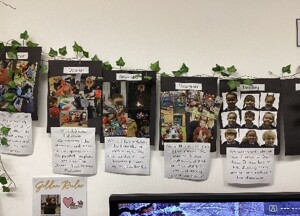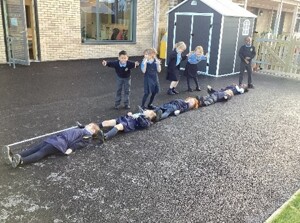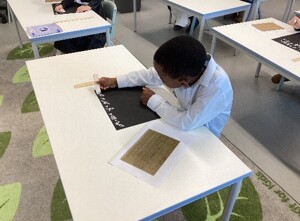History
History at Buntingford First School will aim to create individuals who are curious and evidence driven thinkers. Our curriculum will develop knowledge of the modern world through study of the past by exploring the impact of political, social, technological and religious change with a specific focus on the history of Britain in its global context. Students will have the experience of being exploratory learners, encouraged to develop their own opinions through discovery and discussion about the past, and by studying and considering the arguments of others. We want our students to be confident, articulate and empathetic young people who will be valued citizens of the future.
Why is History important?
History is important because it helps pupils to understand and interpret the past, and therefore, the present.
Through history, pupils develop a deeper cross-cultural awareness and understanding of their own and others’ heritage, through looking at evidence and asking and answering questions.
In history, we can analyse successes and failures, which, in turn, teaches us to learn from our mistakes.
 |
 |
| Time line in EYFS. | Measuring the length of the dinosaur that Mary Anning discovered. |
When is History taught?
History is taught through thematic units. The Satellite View maps out which thematic units feature this subject and clearly shows the objectives taught.
How is History taught?
History is taught through a combination of subject knowledge, historical skills, enquiry and fieldwork. Learning takes place both inside and outside the classroom.
 |
Ragged School Day & asking historical questions KS1 |
| What do we learn about in History? | Who do we learn about in History? |
|---|---|
|
We learn about the following:- Old Things Wars The Ancient Greeks The Inuits Roman Empire and Invasions Inventors e.g. Thomas Edison The Saxons The Vikings The Mayans The Benin Famous historical figures Broadcasting Religions Democracy Transport Extinction Animation Significant local history figure / event |
We learn about the following individuals:- Thomas Edison Pocahontas Josephine Baker Thomas Barnardo Sir Ranulph Fiennes Queen Elizabeth II Queen Victoria Ada Lovelace Mary Anning Flora Drummond Elizabeth Blackwell Ignatius Sancho Walt Disney Mother Teresa Roman Emperors and rulers Ragnar Lothbrok Harold Godwinson Rosa Parks Various World Leaders Tim Berners-Lee John Logie Baird |
How do we assess and monitor History?
In EYFS, we work towards the aims set out in the Development Matters framework related to Understanding of the World so that a child can reach their Early Learning Goal by the end of Reception.
Ongoing assessment informs our teacher’s decision-making process; notifying us when pupils are ready to take the next steps while also providing the flexibility for teachers to respond to the needs of the individual child.
Teachers ask questions or offer statements eliciting information regarding the children’s knowledge and make continuous observations of the pupils’ actions and discussions to inform their assessments.
Teachers have a clear view of where the learning journey is going, in skills as well as content to maximise the impact of their on-going assessment.


